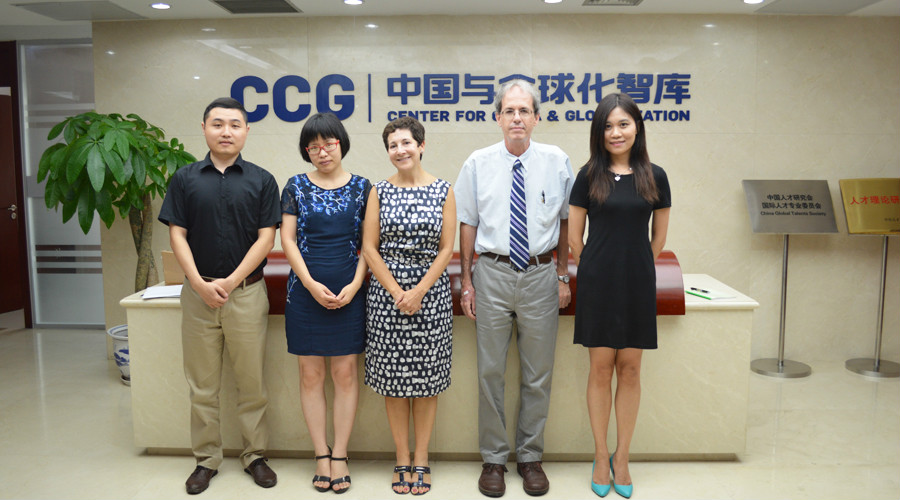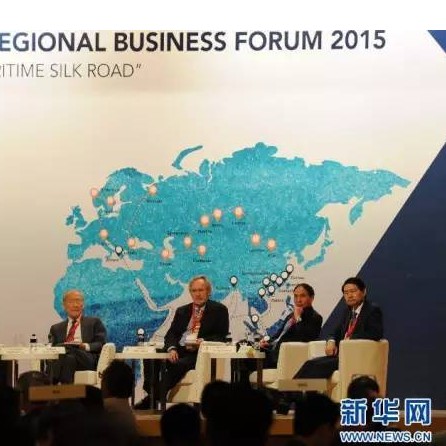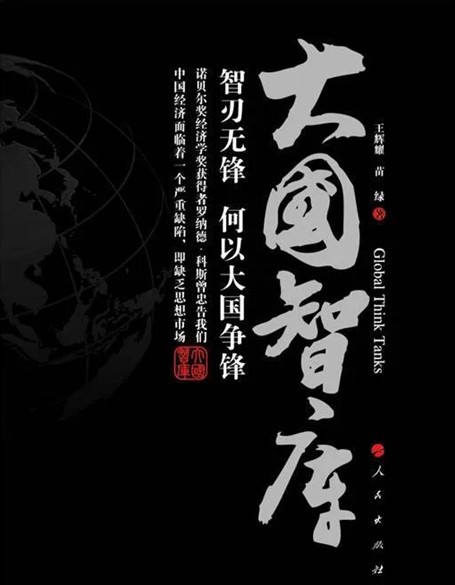-
【China Daily】Returnees heed call of homeland
Individual skills and needs of the market combine to create new opportunities for startup enterprisesAfter living in the United States for 14 years, Xu Liangfeng took only a few minutes to make a life-changing decision in 2012: return to China to start his own business."I told my wife the decision and she said all right. Then it was settled. We didn’t think too much about it," Xu said.He founded a technology company called Picohood in Beijing and devoted himself to developing and producing customized hardware and software for smart technology terminals."I’m confident in the industry’s future. When I started, China had companies focusing on similar products. But I thought these companies didn’t provide high-quality service to customers. I have the skills, and China’s market has the need. I see the combination as an opportunity," Xu said.Xu holds a master’s degree from Purdue University and a doctorate from Columbia University in the US. Before starting Picohood, he worked in multinational companies, including General Motors and Nokia.Xu is one of nearly 2 million overseas Chinese who have chosen to return. According to the Ministry of Education, 1.81 million returned between 1978 and 2014.The Annual Report on the Development of Chinese Returnees, released in 2013 by the Center for China & Globalization(CCG), a Beijing think tank, said 81 percent of returnees found that opportunities to start their own businesses were better in China than where they lived overseas.Chinese authorities have encouraged people to start their own businesses, aiming to boost the market’s vitality. To do so, the government launched a series of actions and offered preferential policies to overseas returnees who want to start a business.Like Xu, many overseas returnees jumped at the chance. However, they still ran into bureaucracy and a talent shortage."Money is not a priority issue for many startup companies in the very beginning. We need high-quality talent who may choose a more developed company," said Shen Xiaorong, another returnee from overseas, who is CEO of Tianrui Space Technology.Entrepreneurs’ concerns have been noticed.On July 12, 80 leaders from academia, business and government gathered at the Roundtable Forum of China and Globalization in Beijing to discuss global development and the opportunities it offers to the country. Entrepreneurship was one of the main topics.The meeting was organized by the Center for China & Globalization, China International Talents Society and the China Association for International Economic Cooperation.Xu Xiaoping, founder of ZhenFund, began angel investing in 2000, inspiring many young talents’ entrepreneurial dreams. Xu talked at the meeting about a talent shortage resulting from policy obstructions."People in the US are curious about China’s development and long for cooperation. But when foreigners come to China, they meet many problems. We lack developed policies to attract them, including work visas and immigration policies," Xu said, adding that if China is not able to provide good policies to attract global talents, their enthusiasm might fade away.Wang Huiyao, president of the globalization center, said the biggest difference between Zhongguangcun and Silicon Valley was the talent deficit."Our annual report on Zhongguancun showed only 1 percent are international talents working there, and nearly 80 percent are overseas returnees," he said.Zhongguancun is one of the country’s hotbeds of entrepreneurship. In 2014, more than 13,000 technology startup companies opened there.Intellectual property protection is one of the top concerns of entrepreneurs returning from overseas."In China’s education institutes and enterprises, plagiarism is a big issue, but there’s no effective solution yet, " said Harvard University mathematics professor Shing-Tung Yau.(By Luo Wangshu and Su Zhou)From China Daily, July 27, 2015
2015年7月29日 -
【China Daily】Returnees heed call of homeland
Individual skills and needs of the market combine to create new opportunities for startup enterprisesAfter living in the United States for 14 years, Xu Liangfeng took only a few minutes to make a life-changing decision in 2012: return to China to start his own business."I told my wife the decision and she said all right. Then it was settled. We didn’t think too much about it," Xu said.He founded a technology company called Picohood in Beijing and devoted himself to developing and producing customized hardware and software for smart technology terminals."I’m confident in the industry’s future. When I started, China had companies focusing on similar products. But I thought these companies didn’t provide high-quality service to customers. I have the skills, and China’s market has the need. I see the combination as an opportunity," Xu said.Xu holds a master’s degree from Purdue University and a doctorate from Columbia University in the US. Before starting Picohood, he worked in multinational companies, including General Motors and Nokia.Xu is one of nearly 2 million overseas Chinese who have chosen to return. According to the Ministry of Education, 1.81 million returned between 1978 and 2014.The Annual Report on the Development of Chinese Returnees, released in 2013 by the Center for China & Globalization(CCG), a Beijing think tank, said 81 percent of returnees found that opportunities to start their own businesses were better in China than where they lived overseas.Chinese authorities have encouraged people to start their own businesses, aiming to boost the market’s vitality. To do so, the government launched a series of actions and offered preferential policies to overseas returnees who want to start a business.Like Xu, many overseas returnees jumped at the chance. However, they still ran into bureaucracy and a talent shortage."Money is not a priority issue for many startup companies in the very beginning. We need high-quality talent who may choose a more developed company," said Shen Xiaorong, another returnee from overseas, who is CEO of Tianrui Space Technology.Entrepreneurs’ concerns have been noticed.On July 12, 80 leaders from academia, business and government gathered at the Roundtable Forum of China and Globalization in Beijing to discuss global development and the opportunities it offers to the country. Entrepreneurship was one of the main topics.The meeting was organized by the Center for China & Globalization, China International Talents Society and the China Association for International Economic Cooperation.Xu Xiaoping, founder of ZhenFund, began angel investing in 2000, inspiring many young talents’ entrepreneurial dreams. Xu talked at the meeting about a talent shortage resulting from policy obstructions."People in the US are curious about China’s development and long for cooperation. But when foreigners come to China, they meet many problems. We lack developed policies to attract them, including work visas and immigration policies," Xu said, adding that if China is not able to provide good policies to attract global talents, their enthusiasm might fade away.Wang Huiyao, president of the globalization center, said the biggest difference between Zhongguangcun and Silicon Valley was the talent deficit."Our annual report on Zhongguancun showed only 1 percent are international talents working there, and nearly 80 percent are overseas returnees," he said.Zhongguancun is one of the country’s hotbeds of entrepreneurship. In 2014, more than 13,000 technology startup companies opened there.Intellectual property protection is one of the top concerns of entrepreneurs returning from overseas."In China’s education institutes and enterprises, plagiarism is a big issue, but there’s no effective solution yet, " said Harvard University mathematics professor Shing-Tung Yau.(By Luo Wangshu and Su Zhou)From China Daily, July 27, 2015
2015年7月29日 -
【China Daily】Returnees heed call of homeland
Individual skills and needs of the market combine to create new opportunities for startup enterprisesAfter living in the United States for 14 years, Xu Liangfeng took only a few minutes to make a life-changing decision in 2012: return to China to start his own business."I told my wife the decision and she said all right. Then it was settled. We didn’t think too much about it," Xu said.He founded a technology company called Picohood in Beijing and devoted himself to developing and producing customized hardware and software for smart technology terminals."I’m confident in the industry’s future. When I started, China had companies focusing on similar products. But I thought these companies didn’t provide high-quality service to customers. I have the skills, and China’s market has the need. I see the combination as an opportunity," Xu said.Xu holds a master’s degree from Purdue University and a doctorate from Columbia University in the US. Before starting Picohood, he worked in multinational companies, including General Motors and Nokia.Xu is one of nearly 2 million overseas Chinese who have chosen to return. According to the Ministry of Education, 1.81 million returned between 1978 and 2014.The Annual Report on the Development of Chinese Returnees, released in 2013 by the Center for China & Globalization(CCG), a Beijing think tank, said 81 percent of returnees found that opportunities to start their own businesses were better in China than where they lived overseas.Chinese authorities have encouraged people to start their own businesses, aiming to boost the market’s vitality. To do so, the government launched a series of actions and offered preferential policies to overseas returnees who want to start a business.Like Xu, many overseas returnees jumped at the chance. However, they still ran into bureaucracy and a talent shortage."Money is not a priority issue for many startup companies in the very beginning. We need high-quality talent who may choose a more developed company," said Shen Xiaorong, another returnee from overseas, who is CEO of Tianrui Space Technology.Entrepreneurs’ concerns have been noticed.On July 12, 80 leaders from academia, business and government gathered at the Roundtable Forum of China and Globalization in Beijing to discuss global development and the opportunities it offers to the country. Entrepreneurship was one of the main topics.The meeting was organized by the Center for China & Globalization, China International Talents Society and the China Association for International Economic Cooperation.Xu Xiaoping, founder of ZhenFund, began angel investing in 2000, inspiring many young talents’ entrepreneurial dreams. Xu talked at the meeting about a talent shortage resulting from policy obstructions."People in the US are curious about China’s development and long for cooperation. But when foreigners come to China, they meet many problems. We lack developed policies to attract them, including work visas and immigration policies," Xu said, adding that if China is not able to provide good policies to attract global talents, their enthusiasm might fade away.Wang Huiyao, president of the globalization center, said the biggest difference between Zhongguangcun and Silicon Valley was the talent deficit."Our annual report on Zhongguancun showed only 1 percent are international talents working there, and nearly 80 percent are overseas returnees," he said.Zhongguancun is one of the country’s hotbeds of entrepreneurship. In 2014, more than 13,000 technology startup companies opened there.Intellectual property protection is one of the top concerns of entrepreneurs returning from overseas."In China’s education institutes and enterprises, plagiarism is a big issue, but there’s no effective solution yet, " said Harvard University mathematics professor Shing-Tung Yau.(By Luo Wangshu and Su Zhou)From China Daily, July 27, 2015
2015年7月29日 -

亚洲慈善与社会中心(CAPS)首席执行官夏露萍博士访问CCG
2015年7月28日,亚洲慈善与社会中心(Centre for Asian Philanthropy and Society, CAPS)首席执行官夏露萍博士(Ruth Shapiro)访问中国与全球化智库(CCG)北京总部, 就中国非营利事业及社会企业的发展和运营模式等方面与CCG研究人员开展了全面而深入的讨论。CCG高级研究员Daniel Garst博士,CCG研究二部总监任月园等出席会议。 夏露萍博士认为“社会企业家”特指那些致力于解决社会问题,以承担创造并维系社会价值为己任的企业家;“社会企业”则指那些为满足社会需求而创办,并最终能为整个社会带来重大影响的企业。夏博士指出,几乎所有的社会问题和议题都可以重新定位为市场问题,因此一个社会企业家必须要考虑到如何把商业模式应用于社会变化,进而推动社会公益的进行。在她看来,如今中国社会正处于转型期,两极分化等社会问题突出,中国需要更多的社会企业家的涌现,用合理的商业模式来解决我们所面临的社会问题。
2015年7月29日 -

CCG主任王辉耀出席首届新加坡区域商业论坛并发表演讲
2015年7月27日,首届新加坡区域商业论坛在新加坡举行。本次活动由新加坡工商联合总会主办,中国与全球化智库(CCG)荣幸地成为参与本论坛的战略合作伙伴,全程参与了论坛的进行。
2015年7月29日 -

【智库研究】大国崛起背后的智库力量
英国著名经济学家罗纳德·科斯教授生前对中国发出十大忠告,其中之一就是:“如今的中国经济面临着一个严重缺陷:即缺乏思想市场。这是中国经济诸多弊端和险象丛生的根源。”这位新制度经济学的鼻祖、产权理论奠基人、1991年诺贝尔经济学奖得主所说的思想市场则是智库发展的摇篮。
2015年7月28日 -
非洲开发银行行长:愿与亚投行共促非洲基础设施建设
2015年7月20日,非洲开发银行行长唐纳德·卡贝鲁卡(Donald Kaberuka)访问中国与全球化智库(CCG)总部并发表演讲。非洲开发银行行长访问CCG见面交流会由CCG执行秘书长苗绿博士主持。CCG副主席、国家开发银行原首席国际业务顾问李山代表CCG致欢迎词。卡贝鲁卡在演讲中肯定了中非贸易的广阔前景,并表示愿与亚投行一起共同促进非洲基础设施建设。以下为演讲实录:
2015年7月27日